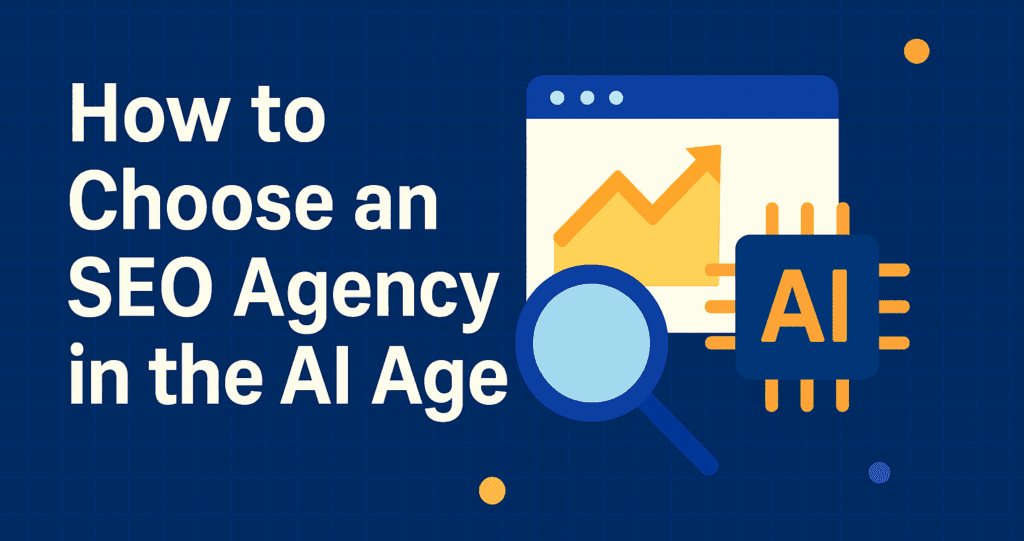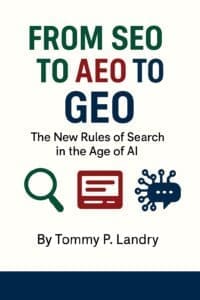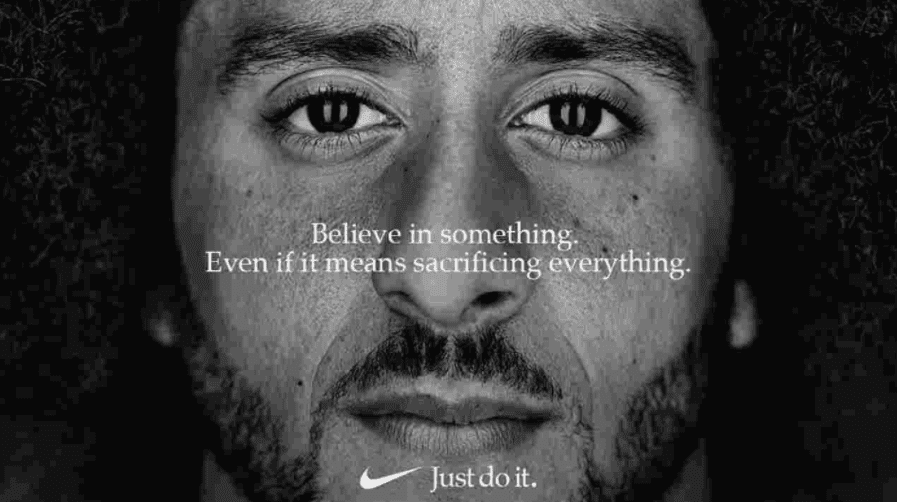Do you find it overwhelming when trying to choose the right SEO agency? A lot of business owners and marketers do.
Every agency promises growth, higher rankings, and more traffic.
But in reality, the quality of agencies varies widely. If you make the wrong choice, it can cost you time, money, and momentum.
You don’t need to become an SEO expert to make the right decision.
What you do need is a framework for evaluating agencies, one that goes beyond shiny presentations or vague claims.
This post breaks down what to look for, what to avoid, and how to make a confident decision.
Why Choosing the Right SEO Agency Is So Important
SEO is still one of the most important channels for long-term growth.
When done well, it compounds over time. Each piece of optimized content or technical improvement should build on the last.
If done poorly, however, it can waste resources or even damage your website’s visibility.
Don’t view your SEO agency as just some vendor. They should become an extension of your team.
The right partner will help you:
- Build a strong technical foundation so your website can be crawled and indexed
- Create content that reaches your target audience at every stage of the buyer’s journey
- Improve visibility not only on search engines but also in AI-driven answer engines
- Connect organic visibility to real business outcomes like leads, sign-ups, or sales
This is why the selection process is so mission critical to your long term success.
Step One: Define Your Goals
Before you even start to evaluate agencies, get clear on what you want SEO to achieve for your business
Traffic for its own sake doesn’t mean much. Tie your goals to outcomes that matter.
Some examples to consider:
- Increase qualified leads from organic search
- Improve brand visibility for specific categories or solutions
- Strengthen thought leadership and discoverability in your industry
- Protect and grow visibility as AI Overviews and answer engines reshape how people find information
When you know what outcomes you’re seeking, you’ll be better equipped to filter agencies based on their ability to deliver.
Green Flags: What to Look For in an SEO Agency
Most posts focus only on red flags, but it’s equally important to know the signs of a partner you should work with.
Here are the three biggest green flags:
1. Proof of Approach / Transparency
Good agencies don’t hide behind buzzwords.
They can clearly walk you through how they work, from research to execution to measurement.
When you ask about their process, look for answers like these:
- How they identify the right keywords and topics (not just search volume, but relevance and intent)
- How they approach technical improvements
- How they build authority with both content and external signals
- How they measure progress and connect it back to business goals
A partner who shares their methodology openly is showing you they’re confident in their process.
If an agency avoids details or defaults to vague promises about “top rankings,” consider that a red flag.
2. Thought Leadership & Expertise
SEO is evolving fast. With a shift toward AI Overviews, generative engines, and entity-based ranking systems, the playbook looks very different today than it did as recently as three years ago.
An agency that stays ahead doesn’t just execute tactics.
They also publish insights, experiment with new methods, and contribute to industry conversations.
This doesn’t mean they need to be famous.
It means you should see signs of curiosity and expertise in action:
- Articles, talks, or posts that show they’re thinking about the future of search
- Clear, useful content that goes beyond “SEO 101” basics
- A perspective on how SEO ties into AEO (Answer Engine Optimization) and GEO (Generative Engine Optimization)
When an agency shows thought leadership, you can trust they’ll bring fresh ideas to your strategy instead of recycling outdated tactics.
3. Process Transparency
SEO is not magic, and it shouldn’t be treated that way.
A trustworthy agency will make their work visible and measurable.
The best partners will show you how they track:
- Visibility for your most important topics and queries
- Traffic patterns connected to those topics
- Conversions or business outcomes tied to organic traffic
- How your presence compares to competitors over time
Transparency also extends to communication.
Regularly scheduled reports or updates should explain what’s been done, why it matters, and what’s next.
You shouldn’t feel like you’re in the dark about where your budget is going.
Red Flags: What to Avoid
While green flags help you spot the right agency, it’s also worth knowing the signs of one you should avoid.
- Guaranteed Rankings: No one can promise a #1 position in Google. Algorithms shift constantly, and rankings depend on countless factors outside an agency’s control.
- Vanity Metrics: If an agency talks only about impressions or raw traffic, be cautious. Those numbers don’t always translate into business value.
- Secretive Methods: If they can’t explain what they’re doing, chances are they’re cutting corners or using outdated tactics.
- One-Size-Fits-All Packages: Your business is unique. SEO should be scoped to your goals, not treated like a cookie-cutter checklist of Web 2.0 placements and generic blog posts.
Step Two: Shortlist and Interview
Once you’ve filtered for green flags and eliminated red ones, build a shortlist of two to three agencies.
Then interview them the way you would a new hire.
Questions to ask include:
- How do you tie SEO work to business outcomes?
- What changes in search do you think will matter most over the next year?
- How do you prioritize when everything seems important?
Listen for how they think, not just what they promise.
The best agencies will challenge your assumptions in a respectful way, showing they care about strategy, not just execution.
Step Three: Compare Value, Not Just Price
It’s tempting to compare agencies on cost alone.
But the cheapest option often ends up costing the most in lost time and missed opportunities.
Instead, compare value:
- Does the agency’s process align with your goals?
- Do you trust their expertise and curiosity about the future of search?
- Will you be comfortable working with them on a regular, ongoing basis?
An agency that charges more but delivers measurable outcomes and long-term growth is a far better investment than one that undercharges and underdelivers.
Making the Final Choice
At the end of this process, you should feel confident about two things:
- The agency understands your business goals and has shown you a plan to connect SEO to those outcomes
- You trust the people you’ll be working with, including their expertise, their transparency, and their ability to grow alongside your business
Choosing an SEO agency isn’t about finding a vendor.
It’s about selecting a partner who will help you build visibility, authority, and trust in a changing digital landscape.
Closing Thoughts
The world of search is shifting quickly, and businesses can’t afford to get stuck with outdated tactics.
By focusing on proof of approach, thought leadership, and process transparency, you can filter out the noise. This is how you can find an agency that’s worth your time and budget.
When you choose well, SEO becomes more than rankings. It becomes a growth engine that helps your business stay visible, relevant, and competitive in the age of AI-driven discovery.
Frequently Asked Questions About Choosing an SEO Agency
Tommy Landry
Latest posts by Tommy Landry (see all)
- How to Use AI to Accelerate Content Creation Without Losing Authenticity - January 6, 2026
- B2B SEO in 2025: Winning Visibility in AI-Curated Buyer Journeys - December 16, 2025
- Local SEO Meets AEO and GEO: How AI Platforms Read Local Authority Signals - December 9, 2025






